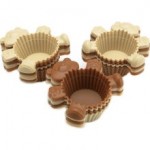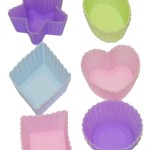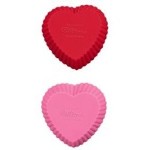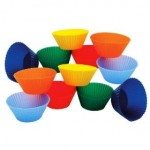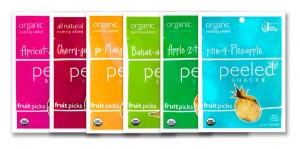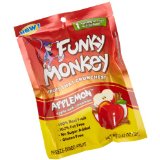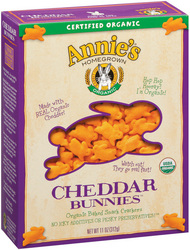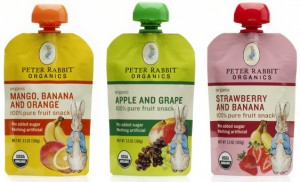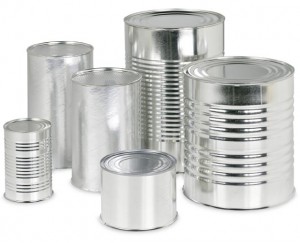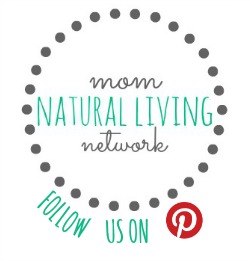We have the best cake decorating shop near our house and I love to go there and pick out the cutest paper liners for cupcakes and muffins. They have something for every party, holiday, or latest whim. I love polka dots and tonight we had corn muffins in purple polka dot liners. I can’t help myself.
On that note….it’s time to find some reusable liners – not only saving trees but saving money, too. Sure, there will be occasions that I will still use the adorable paper liners but for cooking at home, it’s make more sense to use reusable baking cups – wash and use again. These are also great to use to hold snacks or treats.
All of these are made with food-grade silicone and are oven, microwave and dishwasher safe – try putting them in the dishwasher or silverware basket.
REGULAR:
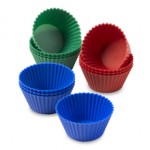 Wilton Ultra-Flex Silicone Non-Stick Reusable Baking Cups – Red, blue and green, set of 12. $7.99
Wilton Ultra-Flex Silicone Non-Stick Reusable Baking Cups – Red, blue and green, set of 12. $7.99
![]() Crate and Barrel Silicone Baking Cups – Clear, set of 12. $9.95
Crate and Barrel Silicone Baking Cups – Clear, set of 12. $9.95
Wilton Bear Silicone Cups – Light and dark brown bear shaped liners, set of 12. $9.99
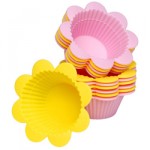 Wilton Flower Silicone Cups – Pink and yellow flower shaped liners, set of 12. $10.99
Wilton Flower Silicone Cups – Pink and yellow flower shaped liners, set of 12. $10.99
 Williams-Sonoma Silicups – Pastel pink, lavender, yellow and blue liners, set of 12. $24.00
Williams-Sonoma Silicups – Pastel pink, lavender, yellow and blue liners, set of 12. $24.00
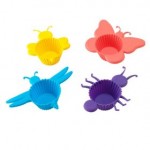 Create N Celebrate Silicone Bug Shaped Fun Cups – Set of 4. $9.95
Create N Celebrate Silicone Bug Shaped Fun Cups – Set of 4. $9.95
MINI:
Kitchen Collection Mini Silicone Baking Cups – Heart, star, egg, diamond, round and square, set of 24. $5.99
Wilton Mini Heart Silicone Baking Cups – Red and pink hearts, set of 12. $15.56
Kitchen Supply Mini Muffin Silicone Baking Cups – Assorted colors, set of 12. $15.99
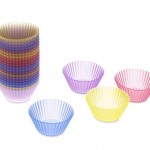 Williams-Sonoma Mini Pastel Silicups – Pastel pink, lavender, yellow and blue liners, set of 12. $24.00
Williams-Sonoma Mini Pastel Silicups – Pastel pink, lavender, yellow and blue liners, set of 12. $24.00
JUMBO:
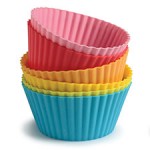
Large Silicone Pans – Assorted colors, set of 6. $12.95
